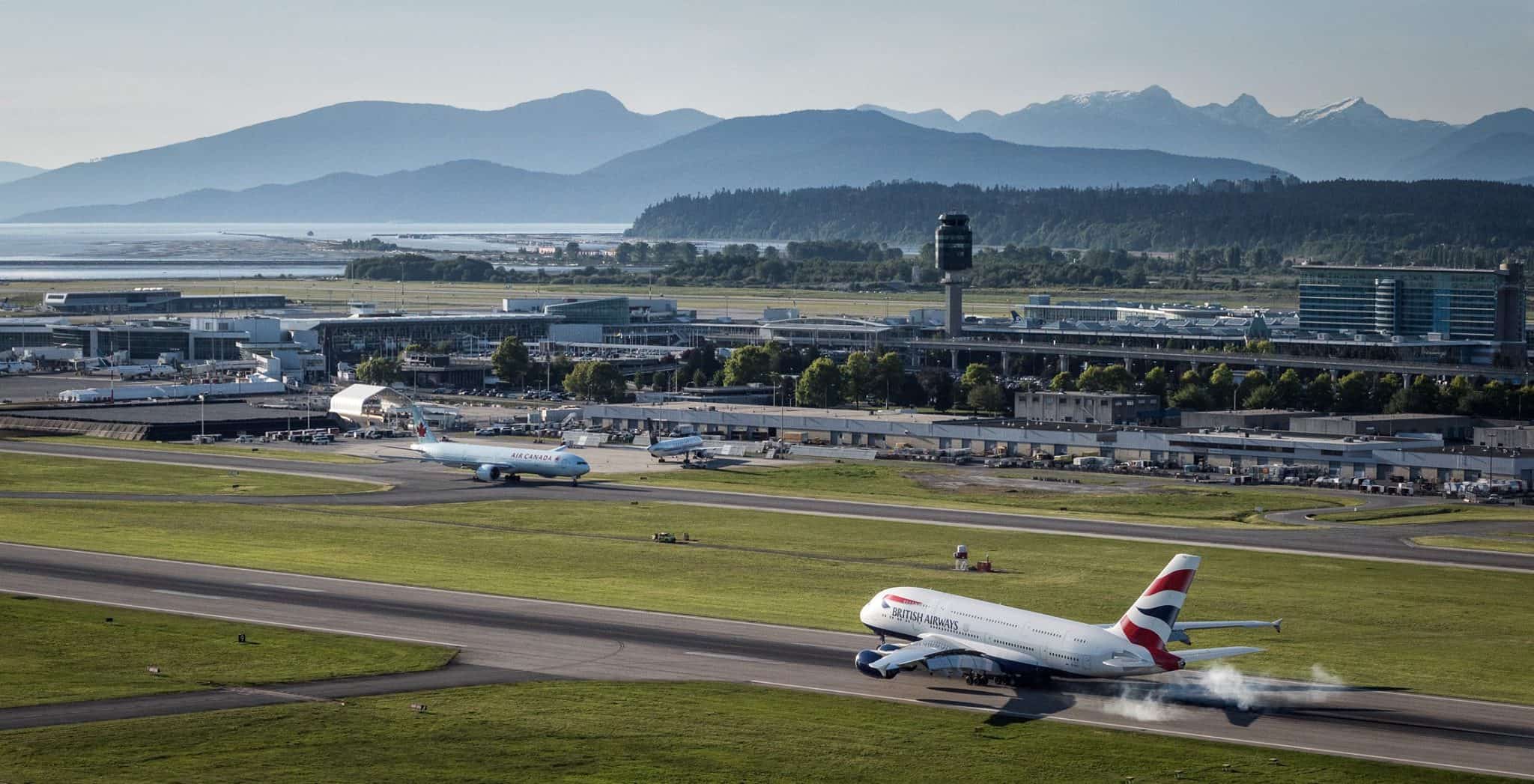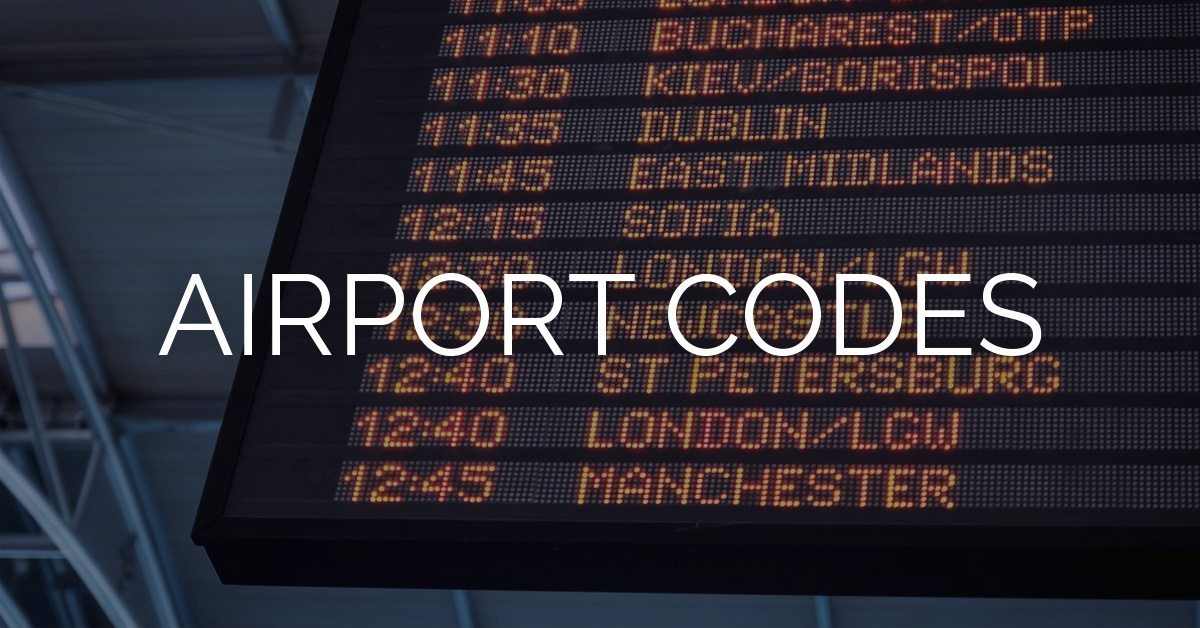Understanding airport codes, commonly referred to as "luchthaven code" in Dutch, is an essential aspect of modern travel. These three-letter abbreviations serve as a universal language for airports worldwide, simplifying the identification process for both passengers and airline operators. Whether you're booking a flight, checking in luggage, or navigating through a bustling terminal, these codes streamline the entire travel experience. However, the significance of these codes extends beyond mere convenience. They play a critical role in global air traffic management, ensuring efficient communication and coordination across international borders.
As you delve deeper into the world of aviation, you'll discover that each luchthaven code carries a unique story. From their origins to their applications, these codes are more than just a set of letters—they are a testament to the intricate systems that power the aviation industry. This article aims to unravel the mysteries behind these codes, offering valuable insights that can enhance your travel experience and broaden your understanding of the global aviation network.
Whether you're a seasoned traveler or someone who's just beginning to explore the world, understanding luchthaven code can significantly enrich your journey. By the end of this article, you'll not only know what these codes represent but also appreciate their importance in the seamless functioning of the aviation ecosystem. Let's embark on this journey to decode the essentials of airport codes.
Read also:Exploring The World Of Altbeyx With Alicebey A Journey Of Welcome
What Exactly Is a Luchthaven Code?
A luchthaven code, also known as an IATA airport code, is a three-letter designation assigned to airports worldwide by the International Air Transport Association (IATA). These codes serve as a standardized system for identifying airports, facilitating smooth communication between airlines, travel agencies, and passengers. For instance, the code "AMS" uniquely identifies Amsterdam Schiphol Airport, while "LAX" represents Los Angeles International Airport. Each code is carefully assigned to ensure no two airports share the same identifier, eliminating confusion in the fast-paced aviation environment.
Why Are Luchthaven Codes Important?
The importance of luchthaven codes cannot be overstated. They simplify the booking process, allowing travelers to quickly identify their departure and arrival points. For airlines, these codes streamline operations, aiding in the management of flight schedules, baggage handling, and passenger information systems. Moreover, luchthaven codes play a crucial role in global air traffic control, ensuring that flights are routed accurately and efficiently. Without these codes, the complexity of managing international flights would increase exponentially, leading to potential delays and miscommunications.
How Are Luchthaven Codes Assigned?
The assignment of luchthaven codes follows a systematic process governed by the IATA. Factors such as geographical location, airport name, and regional significance are considered to ensure uniqueness and relevance. For example, the code "CDG" for Charles de Gaulle Airport in Paris reflects the first letters of the airport's name. Similarly, "JFK" for John F. Kennedy International Airport in New York honors the former U.S. president. This thoughtful allocation of codes ensures that they are both meaningful and memorable, aiding in their widespread adoption and usage.
What Are the Benefits of Knowing Your Luchthaven Code?
Knowing your luchthaven code can significantly enhance your travel experience. It allows you to verify flight details accurately, ensuring you're boarding the correct flight to your intended destination. Additionally, understanding these codes can help you navigate airport terminals more efficiently, as many airport signs and announcements use these abbreviations. For frequent travelers, familiarity with luchthaven codes can save time and reduce stress, making each journey smoother and more enjoyable.
How Can You Find Your Luchthaven Code?
Locating your luchthaven code is a straightforward process. Most airline websites and travel booking platforms display these codes prominently during the booking process. Additionally, airport websites often provide a list of codes for nearby airports, making it easy to find the one corresponding to your travel plans. If you're unsure, a simple online search using the airport's name or location will typically yield the correct code. Knowing how to find your luchthaven code ensures you're always prepared for your travels.
Can Luchthaven Codes Change Over Time?
While luchthaven codes are designed to remain constant, there are instances where they may change. This typically occurs when an airport undergoes a significant name change or relocation. For example, when Hong Kong's airport moved from Kai Tak to Chek Lap Kok, its code changed from "HKG" to "HKG" (remaining the same in this case, but serving as an example of potential changes). Such changes are rare but highlight the flexibility of the system to adapt to evolving circumstances.
Read also:Central Cee Eye Color Unveiling The Mystery Behind The Uk Rappers Striking Gaze
What Happens If a Luchthaven Code Is Incorrect?
An incorrect luchthaven code can lead to significant issues, including booking errors and misdirected luggage. Airlines and travel agencies rely heavily on these codes to ensure passengers reach their correct destinations. If you encounter a discrepancy in your code, it's crucial to contact your airline immediately to rectify the mistake. Understanding the significance of these codes empowers travelers to take proactive steps in safeguarding their travel plans.
Why Do Some Luchthaven Codes Seem Random?
While many luchthaven codes derive from the airport's name or location, others may appear random at first glance. These codes often stem from historical or practical reasons. For instance, "ORD" for Chicago O'Hare International Airport originates from the airport's original name, Orchard Field. Similarly, "YYZ" for Toronto Pearson International Airport follows a pattern used for Canadian airports, where "YY" or "YZ" precedes a unique identifier. Understanding the logic behind these seemingly random codes adds an interesting dimension to the world of aviation.
What Should You Do If You Forget Your Luchthaven Code?
Forgetting your luchthaven code is not uncommon, especially when traveling to unfamiliar destinations. In such cases, you can refer to your travel itinerary, which typically includes the code for your departure and arrival airports. Alternatively, checking the airport's official website or contacting your airline's customer service can provide the necessary information. Being prepared with multiple resources ensures you're never caught off guard during your travels.
Is There a Complete List of Luchthaven Codes Available?
Yes, a comprehensive list of luchthaven codes is maintained by the IATA and available through various online resources. These lists provide an alphabetical directory of airports worldwide, making it easy to find the code for any destination. Some travel websites and apps also offer search functionalities, allowing users to filter codes based on region or country. Having access to these lists ensures you're always informed about your travel plans.
Table of Contents
- What Exactly Is a Luchthaven Code?
- Why Are Luchthaven Codes Important?
- How Are Luchthaven Codes Assigned?
- What Are the Benefits of Knowing Your Luchthaven Code?
- How Can You Find Your Luchthaven Code?
- Can Luchthaven Codes Change Over Time?
- What Happens If a Luchthaven Code Is Incorrect?
- Why Do Some Luchthaven Codes Seem Random?
- What Should You Do If You Forget Your Luchthaven Code?
- Is There a Complete List of Luchthaven Codes Available?
Final Thoughts on Luchthaven Code
In conclusion, luchthaven codes are more than just a set of letters; they are the backbone of the global aviation system. By understanding their significance and applications, travelers can enhance their travel experiences and contribute to the smooth functioning of the aviation network. Whether you're planning a vacation or a business trip, knowing your luchthaven code is a valuable piece of information that can make all the difference in your journey. So, the next time you book a flight, take a moment to appreciate the role these codes play in connecting the world.
As the aviation industry continues to evolve, the importance of luchthaven codes will only increase. They are a testament to human ingenuity and the desire to create systems that simplify complex processes. By staying informed about these codes, you not only enrich your travel experience but also contribute to the efficiency and effectiveness of the global travel infrastructure. Embrace the power of luchthaven codes and let them guide you on your next adventure.
Remember, every journey begins with a single step—or in this case, a three-letter code. So, the next time you encounter a luchthaven code, take a moment to appreciate its significance and the role it plays in connecting you to the world.


